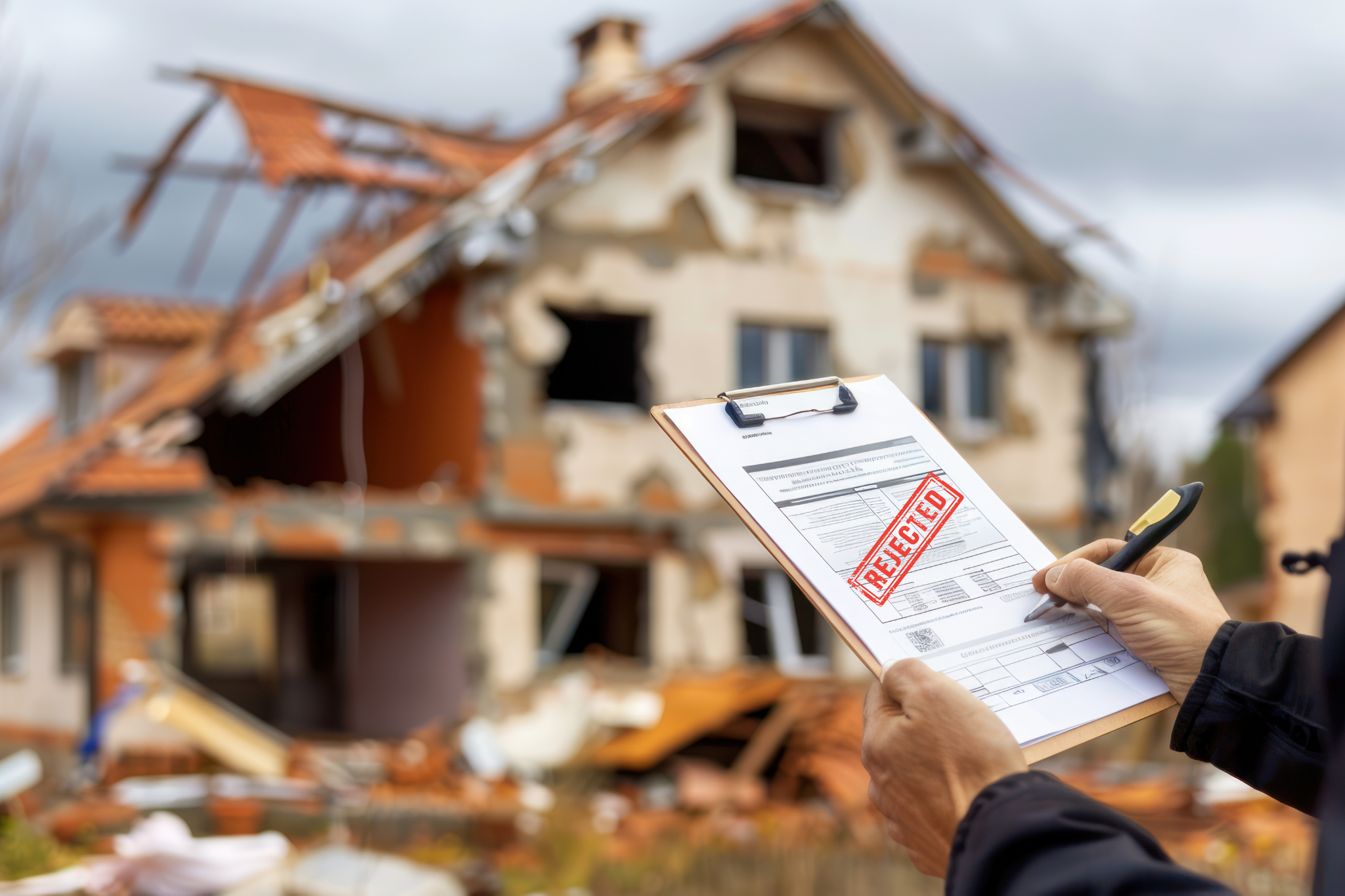
Traversing the Murky Waters of Tenant Rights and Obligations in Australia
Last updated on September 12th, 2023
Are you aware of your tenant rights and obligations? Do you know how often and how much your rent can increase? Are you aware that you can be blacklisted in a tenancy database? When are you entitled to repairs?
Although your living space is rented, you have tenant rights. It can be incredibly confusing and challenging to wrap your head around your rights and obligations. When there is keen interest in the property market, it can be tricky to enact these rights and you may be pressured to agree to something that isn’t strictly something you are required to do.
Today, we will uncover some of the most common problems and questions surrounding renting - what you are entitled to and what your obligations are. This way, if a dispute does arise, you will be able to rest easy knowing you have covered all your bases.
Improving tenant rights
There is a complex web of tenants’ rights and responsibilities that could be adjusted thousands of times and still never be perfect. The state of Victoria has just introduced a whopping 130 new tenants' rights and they have barely scratched the surface.
Some of the changes in Victoria allow renters leniency on late payments, up to $2500 reimbursement for repairs, and a minimum of $30 compensation for sales inspections. Minimum standards are also being set on electrical, plumbing, vermin, lighting and ventilation, amongst others.
In Victoria, lessors are now restricted from asking potential tenants personal questions, raising rent more than once a year, removing renters without proper cause even after a lease agreement has expired, and rental bidding or asking for a higher rental price than advertised. Curious about rental bidding? Learn more about it here.
To allow rentals to feel more like a home, Victoria has also lifted landlord approval for home improvement projects for a number of things, including:
-
- hanging hooks on walls
- putting in additional shelving
- fitting child safety equipment
- painting walls
- fixing draughts
- improving security
- growing a veggie patch in the garden
As with most legal rights, these changes aim to give a fair balance for both renters and owners - for the property to feel safer and more comfortable without impacting its value.
Renter rights and obligations in Australia
Renter rights do vary across the different states in Australia. Let’s go over some of your most important rights and obligations as a tenant including paying your rent, living in your rental, and ending your lease.
The rent you pay
1. How often can your landlord increase your rent and by how much?
A fixed-term tenancy agreement is one where you and the owner agree to complete the lease under certain terms. These terms include the rental payment amount and frequency for a certain duration, generally between six to 24 months.
Generally, your landlord can't increase your rent, unless it’s written into the agreement, if you are renting under a fixed-term agreements for a lease period of two years or less. If the rent increase is written into the lease, it's likely the agreement must also state how the increase will be calculated.
Renting under a periodic agreement or rolling lease usually happens after you have completed a fixed-term lease. This means you and the owner agree to keep an arrangement in place without specifying set terms, including the rent.
Under this arrangement, rent can be increased, but generally only once every six to 12 months, depending on which state or territory you live in.
2. Excessive rent increases
The Residential Tenancies Act is the law that puts a limit on how much landlords can increase the rent by, how often they can raise rents and what notice period landlords need to provide. The law does vary according to the different jurisdictions in Australia.
There is no limit to rental increases, but it usually depends on the property market and the amount of money the landlord has spent on the property. However, the increase shouldn’t be excessive.
Here is a summary for each jurisdiction and only if you’re not on a fixed-term lease.

New South Wales
Renting in NSW means you can have your rent increased once in a 12 month period. And you’ll need a written notice at least 60 days before the rent is increased.
Victoria
Victoria’s residential tenancy laws require landlords and agents provide a 60-day notice, in writing, about any rent increases.
Queensland
Landlords in Queensland need to give a written notice 60 days prior to any proposed rent hike. The notice needs to outline the increased amount and the day the new rental amount takes effect. Additionally, rents can only be raised six months after the last increase.
Western Australia
Landlords in WA need to get approval from the state’s Department of Commerce for any rent increases. The renter needs to be given 60 days notice before the rent goes up. And there needs to be six months between any rent increases.
Australian Capital Territory
Eight weeks’ notice from landlords is required in the ACT. And increases can only be done once every 12 months.
South Australia
The rules are split in SA. If your lease began before March 2014, landlords can only raise rent every six months. Property owners can increase rent once every 12 months for most leases that started after this date. Notice in writing needs to be given 60 days before the rent actually goes up.
Tasmania
Increases to rent in Tasmania can only occur every 12 months and tenants given a 60-day written notice.
Northern Territory
NT residential rental laws have the shortest notice period, only requiring 30 days written notice for rental increases. Also, increases are permitted every six months.

3. Fee-free rent payments
In NSW, SA, TAS, and QLD, you should be offered at least one way to pay rent without a fee. There is no such policy in other states.
Your rights as a current tenant
4. When are you entitled to repairs
The states require landlords to maintain their properties in a habitable condition. Although there are variations on the criteria to deem a property as habitable, it is expected that every rental should be in a reasonable condition.
Repairs are classified as urgent and non-urgent. Urgent repairs are those that may pose a danger or cause huge inconvenience such as electrical faults or a faulty heating system. Non-urgent are those that can be arranged to be repaired at a later time.
You can read more about repairs to your rental and how access to the property is organised here.
5. Forced evictions
If you’re on a fixed-term lease tenancy agreement, you can’t be evicted without valid reasons.
Even if you’re on a periodic lease, you can only be given a ‘no grounds’ eviction if it is within the notification period.
Your obligations as a current tenant
6. Keep the property clean
As a tenant, it is your responsibility to make sure that your rented home is clean and free from infestations, especially if they are not there when you moved in.
7. Inform your landlord of any damage
Damage to the property cannot be prevented sometimes. It is important to let your landlord know if you incur any damage to the property. Depending on what happened, you might need to have it repaired at your expense.
8. Do you have to pay for water use?
If a utility is metered for your use, and this includes water, you are generally responsible to pay for it.
9. Get the landlord’s consent before altering anything
If you’re wanting to install any fixtures or make alterations to the property, you should ask permission from your landlord first. Check out the changes to the rules for this in Victoria. This can also help you to have a better relationship with them.
What happens at the end of your lease
10. Do you have to steam-clean the carpets when you move out?
As a tenant you do need to leave the property in a ‘reasonably clean” condition. You might choose to use a professional cleaner for the end of bond clean, however this isn’t a requirement.
However, there are some exceptions. If you’ve had pets at the property, as an example, laws in NSW can require that you have the carpets professionally cleaned when you move out.
Also, check your lease for any clauses requiring you to have the carpets professionally cleaned at the end of your tenancy. Be aware that even though the clause is there on the lease, it may not be enforceable depending on where you live and assuming you don’t have pets.
11. Getting your bond back
The condition report is a document providing written evidence of the condition of the property and should declare any damage or cleanliness issues.
Is this important? The easy answer is yes. In fact, this is a requirement before your landlord holds a rental bond in some jurisdictions. So whenever you lease a property, it is important to check and keep a copy of this document to reduce the chance of property damage disputes.
You can even write your on condition report. Take photographs and give it to the owner. This way, you both can agree on the property’s existing condition.
Getting help

There are various government agencies and not-for-profit associations assisting tenants with their issues. If you are seeking advice, or wish to make a complaint, here is a list of the relevant state office to contact:
-
- Real Estate Institute of Australian Capital Territory, ph: 0499 881 168
- ACT: Access Canberra, ph: 13 22 81
- NSW: Office of Fair Trading, ph: 133 220
- Real Estate Institute of Northern Territory, ph: (08) 8981 8905
- NT: Consumer Affairs, ph: 1800 019 319
- Real Estate Institute of Queensland, ph: 1300 697 347
- QLD: Fair Trading, ph: 13 74 68
- Real Estate Institute of South Australia, ph: (08) 8366 4300
- SA: Consumer and Business Services, ph: 131 882
- Real Estate Institute of Tasmania, ph: (03) 6223 4769
- TAS: Consumer, Building and Occupational Services, ph: 1300 65 44 99
- VIC: Consumer Affairs, ph: 1300 55 81 81
- Real Estate Institute of Western Australia, ph: (08) 9380 8222
- WA: Consumer Protection, ph: 1300 136 237
And if you find the process of making a complaint daunting, you can lodge your complaint with us and we’ll make sure it gets to the right people to assist.






